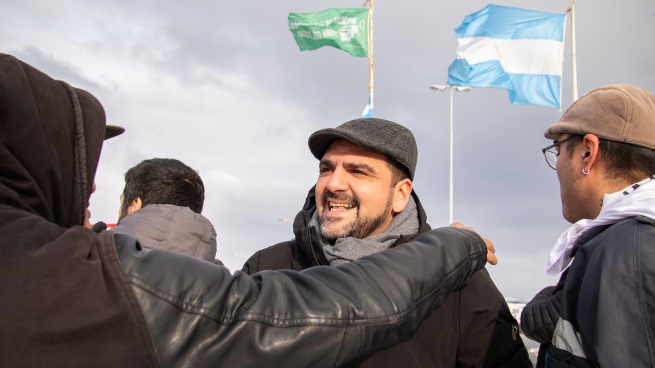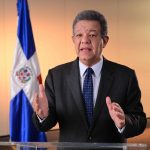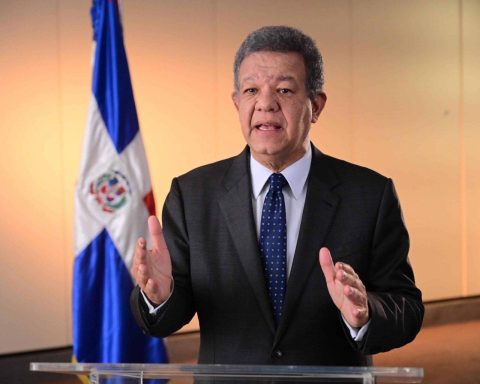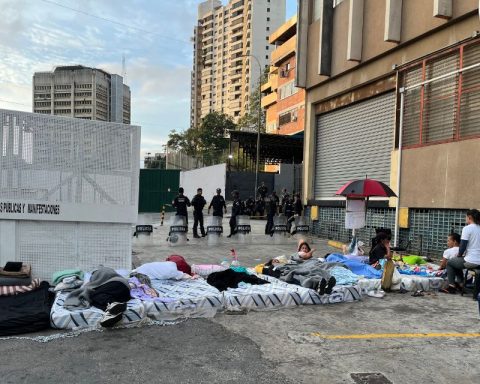The city of Ushuaia, capital of Tierra del Fuego, will incorporate the figure of the deputy mayor, will increase the number of councilors and will not adopt the ballot mechanism in the electoral system, according to the reform of 106 articles of the Organic Charter of the municipality that were voted from this Thursday to Friday morning, in the last ordinary session of the municipal Statutory Conventionconfirmed official sources.
The fourteen conventional also approved a clause that guarantees gender parity in the Deliberative Council, although it separates in that organism the dictation of an ordinance to establish the mechanism that establishes an effective parity system in the elections of the body.
On the other hand, the Convention did not specifically deal with an article on the indefinite re-election of the intendant, although an opposition project to expressly prohibit this possibility did not prosper either.
In this way, the chance of a judicial presentation was left open to interpret whether the mere reform would enable a new mandate to the current mayor Walter Vuoto (Frente de Todos), who has been at the head of the Executive for two consecutive terms.
The reform of the Organic Charter of the Fuegian capital, equivalent to a municipal Constitution, was authorized in 2021 by ordinance and led to the calling of the elections that took place on May 15.

The “More Ushuaia” space, led by Vuotoprevailed in the elections with 25.45% of the votes, obtaining 5 of the 14 seats at stake, while the opposition party “Somos Fueguinos” of former deputy Liliana Fadul, won 3 seats while Together for Change won two.
The rest of the seats went to the Fuegian Popular Movement, United Republicans, Forge and “Ushuaia Sí”, a space led by opposition councilor Javier Branca.
In this way, Vuoto did not have his own majority in the Convention and had to negotiate with the rest of the forces some of the key articles of the reform project.
Regarding the idea of competing for a new mandate, the referent of La Cámpora de Tierra del Fuego opted not to submit it to debate explicitly, although from his environment they trust that the Superior Court of Justice could enable him the third re-election on the basis of that the reform modified the legal status for which he had been elected until now.
Meanwhile, the modification of the Ushuaiense Organic Charter advanced in other aspects that were also promoted by the current municipal management, such as the creation of the figure of the vice-intendent.
On this subject, the conventional and current pro-government councilor, Juan Carlos Pino, affirmed that “he will strengthen the Deliberative Council as an institution and will respect the electoral will” since this official “will be part of the Executive but will also preside over the deliberative body,” he said in the session this Friday.

“He will be a president of the Council with more legitimacy, because he will be elected by the electorate instead of his peers and he will know the government plan in detail. The Deliberative Council of Ushuaia has had six presidents from different political forces in the same period, while that now it will be someone consubstantiated with the management”, founded the mayor.
Meanwhile, the conventional opposition Liliana Fadul opposed the reform with the argument that “we are not in a time where more positions and political structure can be generated.”
The incorporation of the figure of the deputy mayor generated a tie in the final vote, with seven conventional for the affirmative and seven for the negative, which was broken by the double vote of the president of the Convention, Mónica Urquiza, current deputy governor and member of the Fuegian Popular Movement.
In relation to the number of councilors, the Convention resolved by majority that the number of seven current councilors may be increased to a maximum of eleven, based on one every ten thousand inhabitants and considering an initial population of 50 thousand people.
This measure was even supported by the conventional Agustín Coto, of Republicans United, a force habitually opposed in his speeches to the expansion of state structures.
The Convention resolved by majority that the number of current seven mayors may be increased to a maximum of eleven
If the national census carried out this year by the INDEC confirms that the population of Ushuaia exceeds 80,000 inhabitants, the councilors could order the election of ten councilors for next year instead of the current seven.
In turn, the article on gender parity was celebrated by the members of the Ushuaia Women’s Movement (MMU), who promoted its sanction from the beginning of the reform debates.
“We achieved the best wording possible, although we know that the passage of the ordinance that sanctions the Deliberative Council still remains,” said the conventional and mayor of the Frente de Todos, Laura Ávila.
For her part, the journalist Constanza Ojeda, also a member of the MMU, in dialogue with the local press indicated that “not everything was resolved with this article, but it is one more step towards effective parity.”
The conventional ones plan to take the oath of the new Organic Charter next Tuesday, October 11, one day before the celebration of the 138th anniversary of the city of Ushuaia.


















